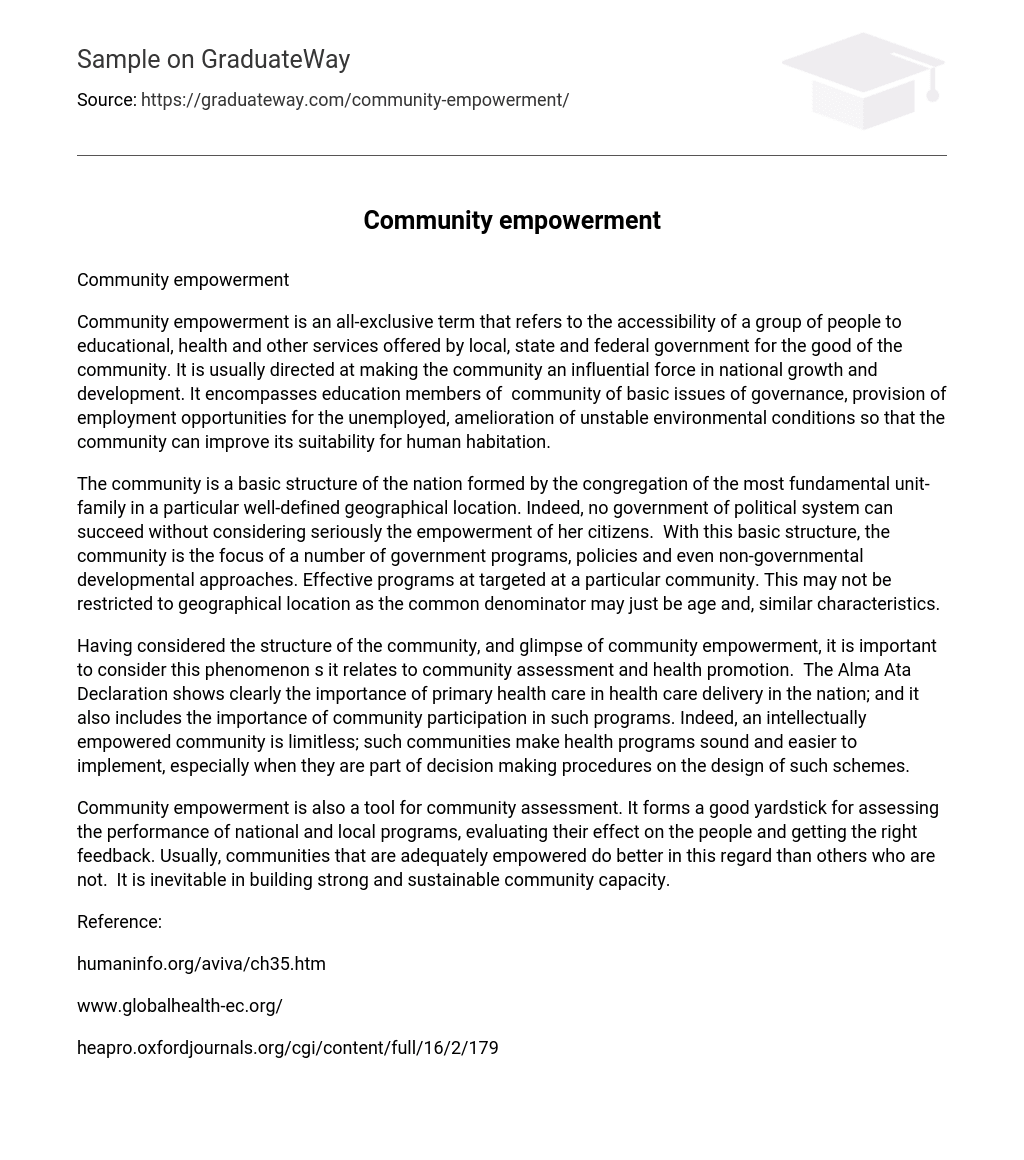Community empowerment is an all-encompassing term that refers to the accessibility of a group of people to educational, health, and other services offered by local, state, and federal governments for the betterment of the community. It aims to make the community an influential force in national growth and development by educating its members on basic issues of governance and providing employment opportunities for the unemployed. Additionally, it seeks to improve unstable environmental conditions so that the community can become more suitable for human habitation.
The community is the basic structure of a nation formed by the congregation of the most fundamental unit, which is the family, in a well-defined geographical location. No government or political system can succeed without seriously considering the empowerment of its citizens. The community is the focus of numerous government programs, policies and non-governmental developmental approaches. Effective programs are targeted at specific communities, which may not be restricted to geographical location but could also include age and similar characteristics.
After examining the structure of the community and glimpsing community empowerment, it is crucial to consider how this phenomenon relates to community assessment and health promotion. The Alma Ata Declaration emphasizes the significance of primary healthcare in national healthcare delivery, as well as the importance of community participation in these programs. An intellectually empowered community is boundless; they make health programs more effective and easier to implement, particularly when involved in decision-making procedures for designing such schemes.
Community empowerment is a valuable tool for community assessment. It serves as a good yardstick for evaluating the performance of national and local programs, their impact on people, and gathering feedback. Typically, communities that are sufficiently empowered perform better in these areas than those that are not. Building strong and sustainable community capacity requires it.
Reference:
Visit humaninfo.org/aviva/ch35.htm for more information.
Visit www.globalhealth-ec.org for more information.
Visit heapro.oxfordjournals.org/cgi/content/full/16/2/179 for more information.





